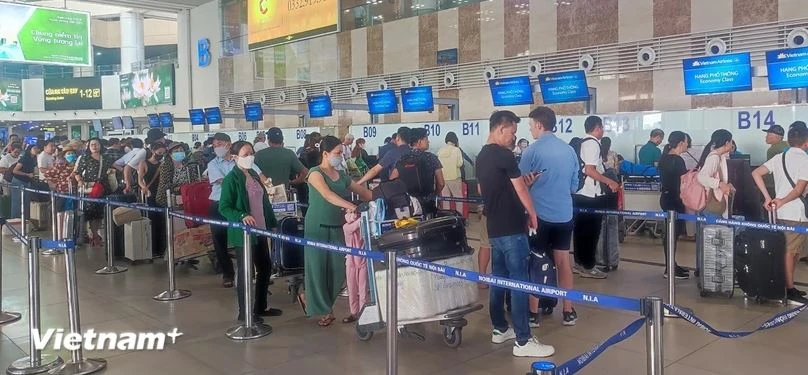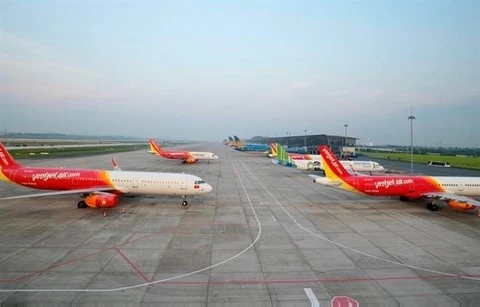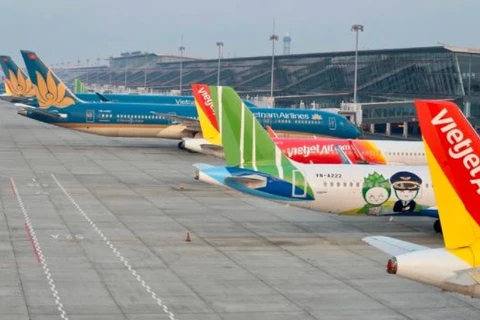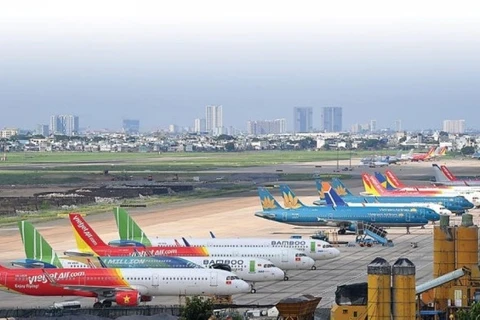
Hanoi (VNA) – Airfares have stayed high not only in Vietnam but also all over the world due to increasing prices of fuels, fluctuations of exchange rates, and disruptions in the supply of aircraft repair and maintenance equipment caused by geopolitical conflicts across the globe, Director General of the Association of Asia Pacific Airlines (AAPA) Subhas Menon has said.
In an interview granted to VietnamPlus e-newspaper, Menon said airlines face three major costs. The first is aircraft which are costly goods themselves. In particular, the demand for air tickets has surged since countries worldwide re-opened their borders after the COVID-19 pandemic, resulting in unprecedented hikes in airfares.
For Vietnam and Asia as a whole, the re-opening of borders occurred much later. These markets are waiting for the delivery of aircraft. Expenses are naturally going up due to the delay in supply of airplanes and components due to supply chain disruptions triggered by geographical conflicts in Ukraine and Gaza.
If airlines cannot receive the aircraft they ordered, they must lease other airplanes. Rents are also increasing, along with escalating interest rates around the globe, leading to the growing cost of operations.
The second is fuel. Before the COVID-19 pandemic broke out, the price of oil was 115 USD per barrel but it now is ranging between 120-130 USD per barrel. This is a constant and major operating cost for airlines.
Third, the aviation industry must re-employ its workforce to replace those who quit their jobs due to the COVID-19 pandemic. The salary and other expenses such as airport charges and flight operation fees have all been on the rise.
Regarding soaring airfares, Menon explained that the price of air tickets has stayed high not only in Vietnam but also all over the world as they depend on supply and demand. If demand exceeds supply, the airfares tend to go up. Currently, the supply is failing to meet the demand, resulting in the hikes in airfares. Whenever the supply catches up with the demand, the airfares will certainly decrease. This is the nature of the market.

At a conference held earlier this month by the Ministry of Transport, Director of the Civil Aviation Administration of Vietnam (CAAV) Dinh Viet Thang said airplane engine manufacturer Pratt & Whitney (PW) is recalling several A321Neo aircraft operated by Vietnam Airlines and Vietjet Air. This has caused the domestic aviation industry to face a serious shortage of aircraft.
The official said due to the recall, the aircraft will be taken out of operation in 2024 and 2025, beginning from January 2024.
As of March 31, Vietnam had a fleet of 205 aircraft, of which 159 are operating, 20 are under regular maintenance, and 26 are having their engines checked and repaired following the request of the manufacturer.
From now until the end of the year, 42 aircraft of the domestic airlines will be taken out of operation to repair the manufacturer's engine issues, said Thang, adding that normally, the work takes about 18 months.
However, the number of aircraft in the world with the same engine problems is huge, disrupting the manufacturer's supply chain. Some airlines had to restructure debt, pushing aircraft rental prices up and creating a scarcity of aircraft and limited rental units.
It is forecast that until 2026 or even 2027, Vietnamese aircraft engine repairs will be completed, enabling normal operations, said the CAAV leader.
He warned that due to the airplane shortage, air fares will peak in the busy summer season. The official affirmed that the aviation sector is implementing many measures to deal with the issue, including reviewing procedures to reduce aircraft turnaround time at airports from 45 minutes to 35 minutes.
In September 2023, engine manufacturer Pratt & Whitney (PW) announced that it must recall the PW1100 engine on Airbus A321Neo aircraft to carry out in-depth inspection and repair to fix production errors. It is estimated that there are about 600-700 PW1100 engines operating in fleets affected worldwide./.






















